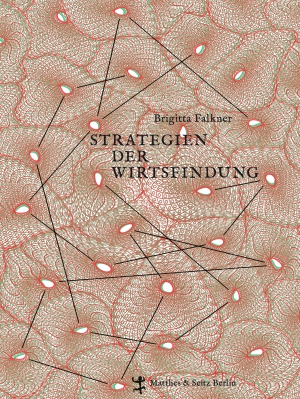Perfidious masquerade? Misleading the enemy? The strategies of host finding are as gruesome as they are wonderful. Whether predatory rotifers or unsuspecting larvae – parasites such as mites, ticks or carnivorous plants master the game of camouflage and mimicry in such a disturbingly fantastic way that they seem to have sprung more from horror literature than from biology books. "How the parasite / from a heap, / the host animal / injected cells maturing, / drives its mischief, / say: roots, / recreating / inscribes itself / in the host body, / excites admiration, / in which disgust is mixed." In her cheerful parasitology, author and illustrator Brigitta Falkner approaches these amazing organisms from ever-changing angles of view and hatching. More than 200 full-page picture and text panels create a subtle web of fact-saturated knowledge, its intoxicating visualization and poeticization, in which natural history merges with elements of the graphic novel. In the symbiotic interplay of image and text, the dividing lines between fact and fiction blur just as shimmeringly as those between parasite and host body – a unique epic about the wondrous world of parasitism.
Awards
Hot List Prize 2017 SWR List of best Books 2017 Shortlist of the Austrian Book Prize 2017Brigitta Falkner, born in Vienna in 1959, writes books, produces short films and makes comics and drawings. Her work has been exhibited so far at Marta Herford 2002, Kunsttempel Kassel 2005, Literaturhaus Graz 2015 and Literaturmuseum Wien 2016, among others. She was awarded the Heimrad Baker Prize in 2010, the City of Vienna Prize for Literature in 2011 and Textfilm made in Austria in 2014.
"Poetry, philosophical-biological textbook, graphic novel – Brigitta Falkner's beguilingly beautiful book provides delightfully alienated and crawling hours, as it is dedicated to all the little parasites that nest and rule around us, rotifers, mites, ticks and everything else that escapes our eye." - Wiebke Porombka, Zeit Online







